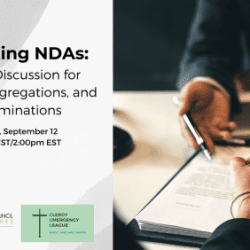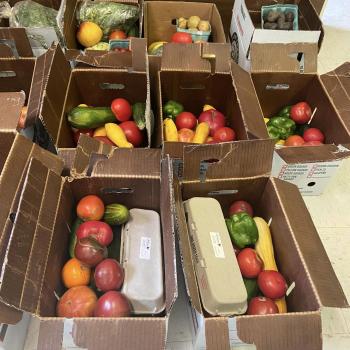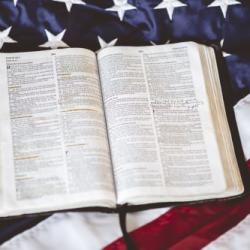When you’re invited to guest preach in a congregation, there are many aspects of leading worship you’ll need to consider. Here’s some guidance and a Supply Preacher’s Checklist.
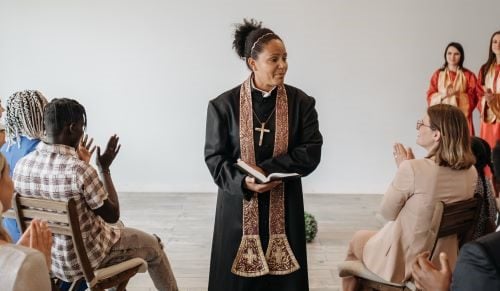
Those who are invited to fill in as a guest or supply preacher and worship leader for a church have unique challenges and responsibilities. In my previous post, I shared Tips and Advice for Guest Preachers and Supply Preachers that focused solely on the sermon. But there are other practical issues that come with guest preaching and leading worship.
In this piece, I’ll offer advice and guidance drawing on my nearly twenty-five years as an ordained pastor who has both invited supply preachers and served as a guest preacher. I also created this Supply Preacher’s Checklist to help you ask the right questions, cover all your bases, and be prepared to preach and lead worship. (The link gives you access to a folder with the checklist both as a Word document and PDF.)
Asking the right questions
When it comes to preparing to guest preach, asking the right questions is essential.
You’ll need to find out things like how you should dress for leading worship. (Alb? Clerical collar? Or no robe?)
And what scripture readings will be chosen. (Lectionary? Preacher’s choice? And how many readings?)
Not to mention the question of compensation. (What’s the going rate? Do they cover mileage?)
I created the Supply Preacher’s Checklist to help you remember what questions to ask and gather the information you need to lead the service.
Pay attention to both the denominational and congregational context
Some churches are open to supply preachers from traditions outside of their denomination. This means that the guest preacher will need to think about both the denominational distinctions of the worship service as well as the congregation’s local practices and expectations.
For example, a Lutheran asked to preach at a Christian Church (Disciples of Christ) may be surprised to find that they are not invited to preside at communion since this denomination allows for laity to serve in this capacity.
Or you may be asked to write and lead the “Prayer of Illumination” in a Presbyterian worship service, something that other traditions may not have.
But even with the conventions of a particular denomination, every congregation has their own unique practices.
For instance, most Lutheran churches have a common order of worship: Gathering, Word, Meal, Sending. But I once served a Lutheran church where they served communion first. And they had a theological-anthropological reason for doing so. It is because they are in an impoverished neighborhood and wanted their liturgy to reflect the idea that our bodies must be fed in preparation to be nourished by the Word of God.
As another example, you may assume that certain denominations will expect you to wear formal vestments. But some congregations prefer that their worship leaders wear “civvies” (civilian clothing).
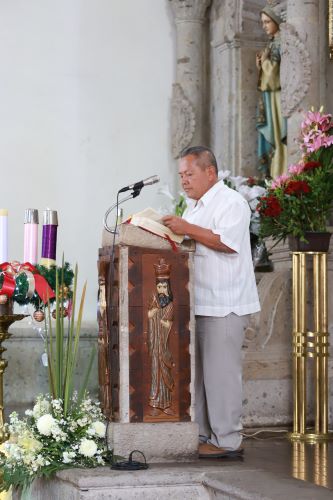
So, avoid making assumptions and instead ask questions when you talk with the regularly called pastor or whoever invites you to supply preach at the church. The questions in this Supply Preacher’s Checklist will help you organize this information.
Communion practices
The ways in which congregations celebrate the Eucharist and serve the communion meal vary immensely. So, you’ll need to ask questions about how communion happens in the congregation where you’ll be the guest preacher. Things like:
- Who is allowed at the table? (Children? Those who are not yet baptized?)
- Where in the service is the rite of communion located? (Does is come at the beginning, middle, or toward the end?)
- What are the elements that will be used? (Wine or grape juice? Bread or wafers? Is a gluten-free option available?)
- What words are said? (Will a fully annotated leader’s booklet be available? Or do you need to bring along your own copy of the full communion liturgy?)
- What is the method of distribution? (Do people come forward in a continuous line? Or do they kneel at the chancel railings? Or are they served in the pews?)
- When do the servers receive communion? (Before serving the congregation or after?)
This Supply Preacher’s Checklist contains many of the questions you’ll need to ask to properly prepare for presiding at communion.
Ask about technology and audio-visual components of the worship service
Almost all congregations use microphones and an amplification system. But there are numerous kinds of devices. So you’ll need to ask what kind of microphone you’ll be using. (Clip-on? Hand-held? Or pulpit mic only?)
And you’ll need to arrive early enough to check in with the person running the sound system to learn how your mic works and check the levels. (Do you need to turn it on each time you speak? Or do they control that for you?)
Also, ask if they livestream their service and/or record it and make it available on the Internet. This may shape how you lead worship.
Tech challenges and opportunities
For example, in one church I was instructed that I needed to preach from the pulpit and not move around the chancel because the video camera was directed at only at that position.
In another congregation, I was asked to go to the camera during the passing of the peace and wave hello to the onscreen worshipers, something all the in-person worshipers did as well.
You’ll also want to find out if they use Power Point or some other audio-visual component for the worship service. They may ask you to suggest images to show during your sermon or to display as the theme of the service.
The Supply Preacher’s Checklist includes questions about technology and audio-visual components of the worship service.
The question of compensation
A question that may be a bit awkward, but still necessary, is how much you will be paid for being a guest preacher or supply preacher.
Most denominations either have a set rate for supply preachers or suggest a range for churches depending on their geographic area.
Other churches ask the guest preacher what their fee is, so the matter may need to be negotiated. (In this case, you can ask what they normally budget for a supply preacher and see if it fits your acceptable range of remuneration.)
In any case, it’s important to discuss the compensation or honorarium BEFORE arriving at the church to preach and lead worship.
You’ll need to find out the following:
- What does the church pay for one worship service? What is the compensation for two worship services? (Note, a church may pay slightly less for the second service since you’re already there. But if you’re expected to have two different sermons, the fee should be the same for each service.)
- Who is responsible for giving you the check? Will it be ready for you when you arrive? What is the name of the person you should ask for in case the check is not there?
- Do they cover mileage? (Check the IRS standard mileage reimburse rate here.)
- Do you need to send them a W9 tax form ahead of time? (Usually this is not the case unless you are making more than $600, as stipulated by the IRS. If you are preaching for several Sundays and will reach that total, then you’ll need to give them a W9 form. And they need to send you a 1099 form at the end of the year.)
At the end of this Supply Preacher’s Checklist, you’ll find a section for asking about compensation.
There should be no surprises
When congregations don’t communicate their expectations with supply preachers – and when guest preachers don’t ask the right questions – there may be uncomfortable surprises when the person shows up on Sunday morning.
Like, the time I was expected to share a Children’s Message but was not informed ahead of time (and forgot to ask).
And another time when the service stopped cold because I didn’t realize I was supposed to hand out the offering plates to the ushers. (I had mistakenly assumed – and didn’t ask to clarify – that the worship assistant would do that.)
Not to mention the time when I went to lift up the bread for communion and realized that it was plastic and couldn’t be “broken” during the Eucharist. (Of course, there’s no way I would have even thought to ask whether the bread would be real!)
The best way to avoid these surprises is to ask questions ahead of time so that you’re not caught off-guard in an awkward moment during the worship service. This Supply Preacher’s Checklist will help you remember the kinds of details you’ll want to ask about as you prepare to lead worship.
But realize that there may be surprises
No matter how much you prepare, there are bound to be things that you didn’t think to ask about or that come out of the blue. Flexibility and being willing to simply “go with the flow” will allow you to conduct the worship with less anxiety and with full presence in the moment.
Grace abounds

Even when a supply pastor makes unintended mistakes or there are mishaps with the worship service, people are generally understanding and forgiving. Most congregations are patient and kind to guest preachers. So, if you can keep your sense of humor, a sense of humility, and a sense of God’s grace in those awkward moments, that will go a long way to smoothing things over.
Congregations and pastors: be gracious hosts to your guest preacher or supply preacher
While the guest preacher needs to ask the right questions of the congregation they’re invited to serve, the congregation and the pastor also have the responsibility to be gracious hosts to their guest preacher.
This means anticipating the needs and questions of the guest preacher before they arrive and supplying them with the information they’ll need to preach and lead worship.
The Supply Preacher’s Checklist can be used by congregational leaders to put together a set of instructions for any guest preacher who might fill in for the regularly called pastor.
It can also be used by the secretary, organist or music director, and the person assisting with worship that day to make sure all the bases are covered, the needed information is collected, and everything (and everyone) in place for the worship service to go as smoothly as possible.
Give thanks for the opportunity to lead worship
At the foundation of leading worship should be profound gratitude for the opportunity and privilege to be able to lead a congregation in the liturgy, a word that literally means “the work of the people.”
The Christian assembly is a symbol of koinonia — “sharing” or “shared things” in Greek. We share together our praise and thanksgiving, our laments and our celebrations, the reading of Scripture and the sacraments. We share hymns and music, our intercessions for those in need, and our commitment to justice and peace as we are sent out into the world from the service.
Think of the word ecclesia, which is the Greek word for church. It comes from the word kaleo which means “to call.” So ecclesia literally means being “called out” – set apart, sanctified, made sacred. In worship, we are called out by God to be the people of God. And as a worship leader and preacher, you are called to conduct the worship service with reverence and joy.
Read also:
Tips and Advice for Guest Preachers and Supply Preachers
ECO-WEDDING LITURGY: Ideas for a Creation-Centered Wedding
Holy Communion: YOUR Incarnation, EARTH’S Incarnation
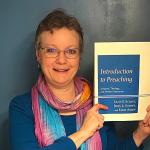
The Rev. Dr. Leah D. Schade is the Associate Professor of Preaching and Worship at Lexington Theological Seminary in Kentucky and ordained in the ELCA. Dr. Schade does not speak for LTS or the ELCA; her opinions are her own. She is the author of Preaching in the Purple Zone: Ministry in the Red-Blue Divide (Rowman & Littlefield, 2019) and Creation-Crisis Preaching: Ecology, Theology, and the Pulpit (Chalice Press, 2015). She is the co-editor of Rooted and Rising: Voices of Courage in a Time of Climate Crisis (Rowman & Littlefield, 2019). Her newest book is Introduction to Preaching: Scripture, Theology, and Sermon Preparation, co-authored with Jerry L. Sumney and Emily Askew (Rowman & Littlefield, 2023).








